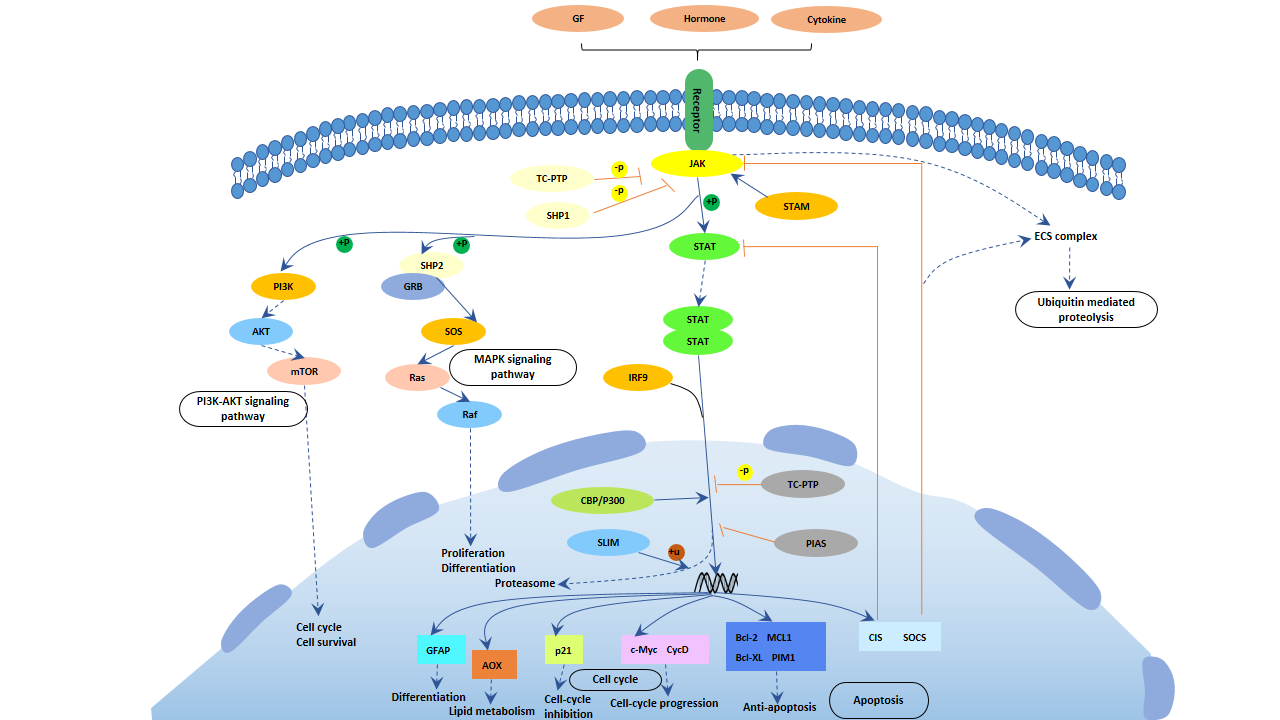
What is JAK-STAT Signaling Pathway?
The Janus kinase/signal transducers and activators of transcription (JAK/STAT) pathway is a chain of interactions between proteins in a cell.
The Function of J JAK-STAT Signaling Pathway
The JAK-STAT signaling pathway transmits information from extracellular chemical signals to the nucleus resulting in DNA transcription and expression of genes involved in immunity, proliferation, differentiation, apoptosis and oncogenesis. This pathway plays a prominent role in mediating signal transduction for many cytokines.
The Processes of JAK-STAT Signaling Pathway
There are three key parts of JAK-STAT signaling pathway: Janus kinases (JAKs), Signal Transducer and Activator of Transcription proteins (STATs), and receptors (which bind the chemical signals). In mammals, the JAK/STAT pathway is the principal signaling mechanism for a wide array of cytokines and growth factors.
Following the binding of cytokines to their cognate receptor, STATs are activated by members of the JAK family of tyrosine kinases. Once activated, they dimerize and translocate to the nucleus and modulate the expression of target genes.
In addition to the activation of STATs, JAKs mediate the recruitment of other molecules such as the MAP kinases, PI3 kinase etc. These molecules process downstream signals via the Ras-Raf-MAP kinase and PI3 kinase pathways which results in the activation of additional transcription factors.
JAK-STAT Signaling Pathway and Related Diseases
Dysregulation of JAK-STAT signaling is associated with various immune disorders. Accumulating evidence has discovered that STAT3 SNPs is associated with Crohn’s disease, psoriasis and ankylosing spondylitis, STAT4 SNPs is associated with rheumatoid arthritis, Crohn’s disease, systemic lupus erythematosus and Sjogren’s syndrome, and STAT6 SNPs is associated with asthma.
Additionally, given the researches implicating JAK-STAT in autoimmune disease and malignancy, it is not surprising that this pathway has become an attractive target for pharmaceuticals. Ruxolitinib, a JAK1 and JAK2 inhibitor with efficacy for the treatment of polycythemia vera and myelofibrosis, was the first FDA approved JAK inhibitor, or Jakinib.





